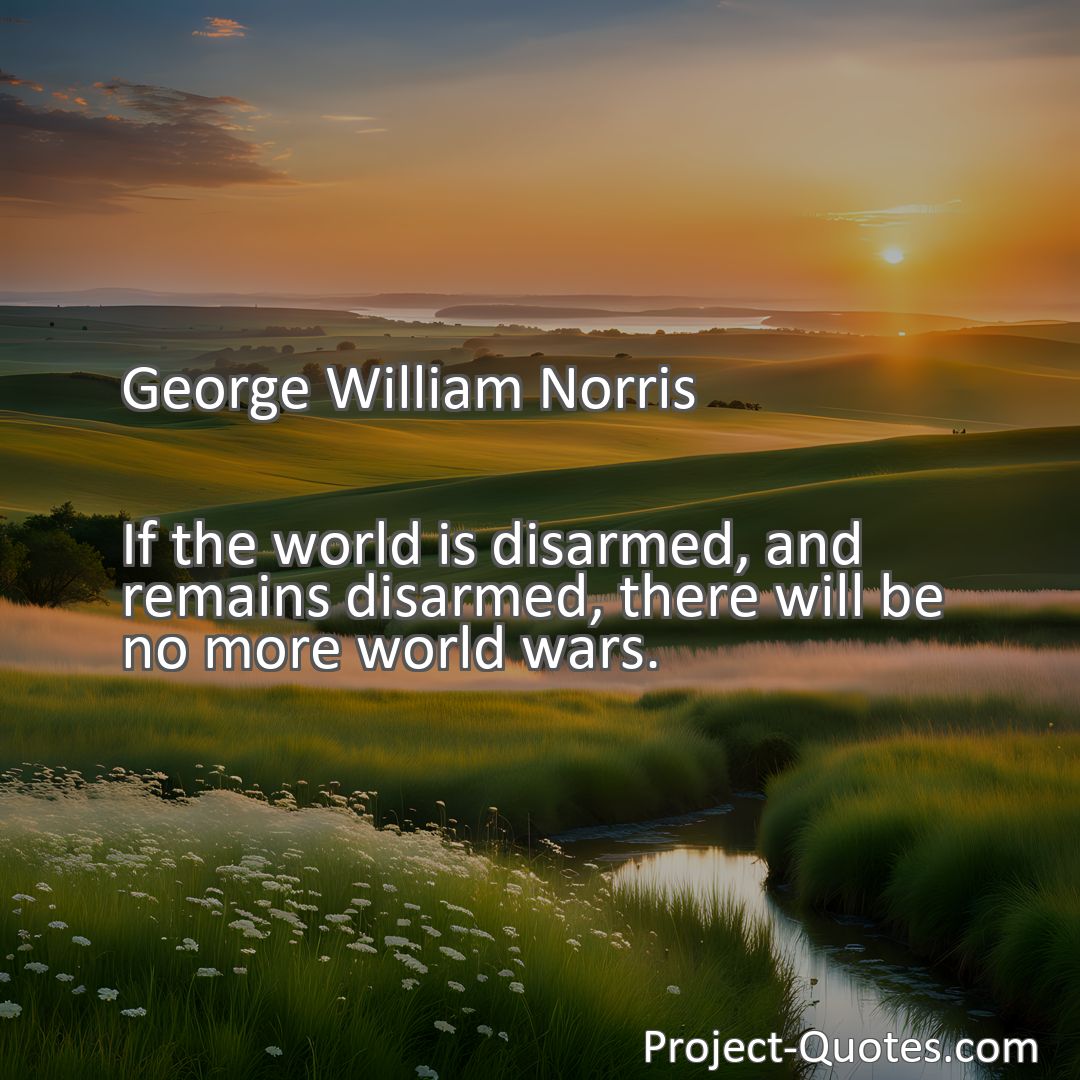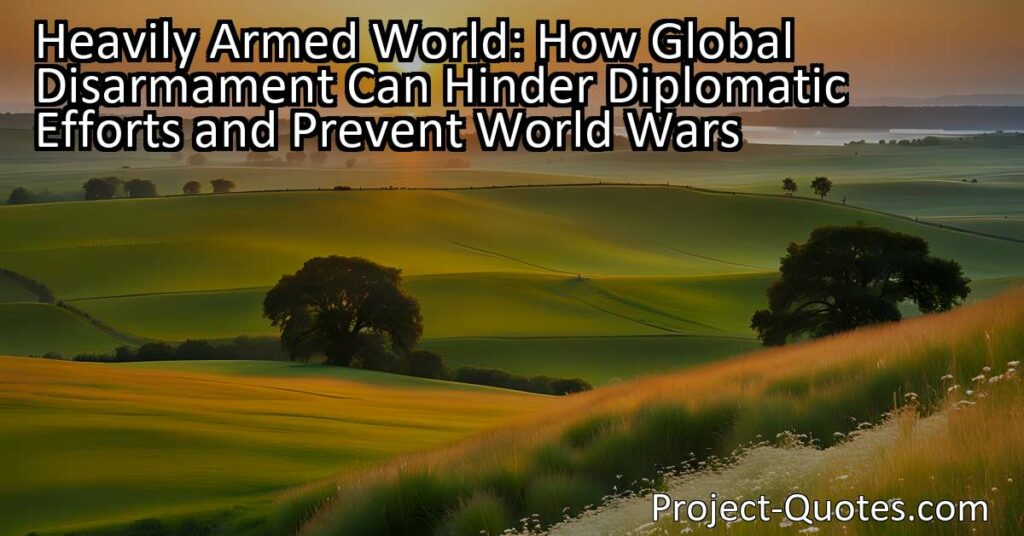If the world is disarmed, and remains disarmed, there will be no more world wars.
George William Norris
In a heavily armed world, diplomatic efforts can be hindered, making it difficult to establish peaceful relationships and prevent world wars. By prioritizing global disarmament, we can break the cycle of violence and promote negotiations and dialogue as means of conflict resolution. This shift in mentality would foster trust, cooperation, and a sense of global community among nations.
Table of Contents
Meaning of Quote – If the world is disarmed, and remains disarmed, there will be no more world wars.
In the words of George William Norris, “If the world is disarmed, and remains disarmed, there will be no more world wars.” These profound words hold an essential message for humanity, urging us to reflect on the significance of global disarmament. What does it mean for a world to be disarmed? How can the absence of weapons prevent the outbreak of world wars? In this essay, we will delve into the depths of this quote, exploring its implications and discussing the potential benefits of global disarmament.
To truly understand the power behind George William Norris’ quote, we must first examine the concept of disarmament. Disarmament refers to the reduction or elimination of military arms and weapons possessed by countries or individuals. It is the epitome of peace-building, promoting the idea that true security lies not in an aggressive display of military might, but in the absence of weapons altogether.
Historically, world wars have caused unimaginable devastation, changing the course of nations and leaving scars on generations. These conflicts have been fueled by militarization, arms races, and the desire for dominance. But what if we could break this cycle of violence and destruction? What if nations could prioritize disarmament and work towards a future free from the horrors of war? Norris’ quote brings hope that a world without weapons is a world without war.
In a disarmed world, conflicts would ideally be resolved through diplomatic means rather than resorting to violence. International disputes would be settled through negotiations and dialogue, allowing nations to find common ground and maintain peaceful relationships. This shift in mentality would promote inclusivity, understanding, and empathy among nations, fostering a sense of global community.
Moreover, global disarmament would also eliminate the immense financial burden associated with military expenditures. Countries spend exorbitant amounts of money on weapons, defense systems, and maintaining military forces. These funds could instead be redirected towards improving the quality of life for their citizens, investing in education, healthcare, infrastructure, and combating poverty. By reallocating resources from war to welfare, nations would enhance their overall well-being and ensure a brighter future for generations to come.
The eradication of nuclear weapons would be a critical aspect of global disarmament. Possessing such destructive power poses an inherent threat to humanity. The devastating consequences of nuclear warfare were witnessed during the bombings of Hiroshima and Nagasaki in 1945, where countless lives were lost, and generations were affected by the long-term health and environmental consequences. It is essential to recognize that these devastating weapons hold no place in a peaceful world.
Advocates of disarmament argue that the absence of weapons leads to increased trust and cooperation among nations. The fear and suspicion that arise from a heavily armed world hinder diplomatic efforts and breed hostility. Without the constant threat of annihilation, nations would be more willing to cooperate and work together to address shared challenges, such as climate change, poverty, and pandemics.
However, it is important to acknowledge the skepticism surrounding global disarmament. Critics argue that not all nations may be willing to dismantle their weapons, leading to an imbalance of power. They claim that disarmament might expose vulnerable nations to aggression and exploitation by those who refuse to disarm. These concerns highlight the delicate nature of the global disarmament process and emphasize the need for comprehensive and inclusive disarmament agreements.
To ensure the success of global disarmament, a system of international monitoring and enforcement would be essential. This would involve the establishment of independent verification mechanisms, tasked with overseeing the dismantling of weapons and ensuring compliance with disarmament agreements. Such measures would build trust among nations and provide a framework for maintaining global peace.
Throughout history, various disarmament efforts have taken place, such as the Partial Test Ban Treaty and the Treaty on the Non-Proliferation of Nuclear Weapons. These initiatives demonstrate that progress is possible, and a world without weapons is not an unattainable dream. It requires leadership, dialogue, and a collective commitment to peace.
In conclusion, George William Norris’ quote serves as a powerful reminder that disarmament is the key to preventing future world wars. It urges us to envision a world where conflicts are resolved peacefully, resources are better allocated, and relationships among nations are built on trust and cooperation. While global disarmament may present challenges, the potential benefits far outweigh the risks. By embracing disarmament, we can pave the way for a brighter and more peaceful future for all of humanity.
I hope this quote inspired image brings you hope and peace. Share it with someone who needs it today!


